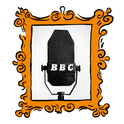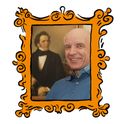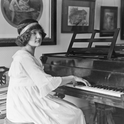A few years ago an article in the Guardian asked of the drummer Seb Rochford: "Is this the hardest-working man in music?" At the time, Rochford was collaborating with the tenor saxophonist Pete Wareham in three bands—Polar Bear, Acoustic Ladyland and Fulborn Teversham—as well lending a hand (or, rather, two hands) in a dizzying number of other projects, with such luminaries as David Byrne, Brian Eno and Pete Doherty. Acoustic Ladyland and Fulborn Teversham have since stalled, apparently definitively, but Polar Bear, the most recognisably jazz-orientated of the various Wareham-Rochford collaborations, endures.
Polar Bear's fifth album, In Each and Every One, is released on the Leaf label on 24th March. Joining Rochford are Wareham, his fellow tenor player Mark Lockheart, bassist Tom Herbert and the electronics wizard, Leafcutter John. Those electronic textures are now as much an integral part of Polar Bear's sound world as Rochford's clattering polyrhythms and Wareham's muscular tenor playing. When I spoke to Rochford last week, I began by asking him how he would describe the musical journey he and the others have taken since Polar Bear's first album, Dim Lit, which was released in 2004.
SR: It feels like a natural progression. Every album is different but comes from the same place. I only make an album when I feel like I’ve moved on. So sometimes there are bigger gaps between albums than others, because I can’t force it. Maybe I could force it, but I choose not to.
JD: One way of describing that musical journey would be to say that, with each album, Polar Bear have moved further away from something recognisable as “jazz”.
It’s not intentional. But I don’t actually listen to a lot of jazz. When I listen to jazz now, it tends to be older stuff—Ellington, Billie Holliday, John Coltrane. That’s the stuff that seems to stay with me.
How much of this album was improvised?
Lots—probably more improvisation than ever. So in that sense, it’s more jazz than ever.
Polar Bear began as a largely acoustic project, didn’t it? And then with each subsequent album you introduced new textures, electronics. Was Leafcutter John getting involved an important moment in the development of Polar Bear’s sound?
Seb Rochford: "I don't actually listen to a lot of jazz"
March 19, 2014

Seb Rochford (centre) with the other members of Polar Bear (credit: RJ Fernandez)












